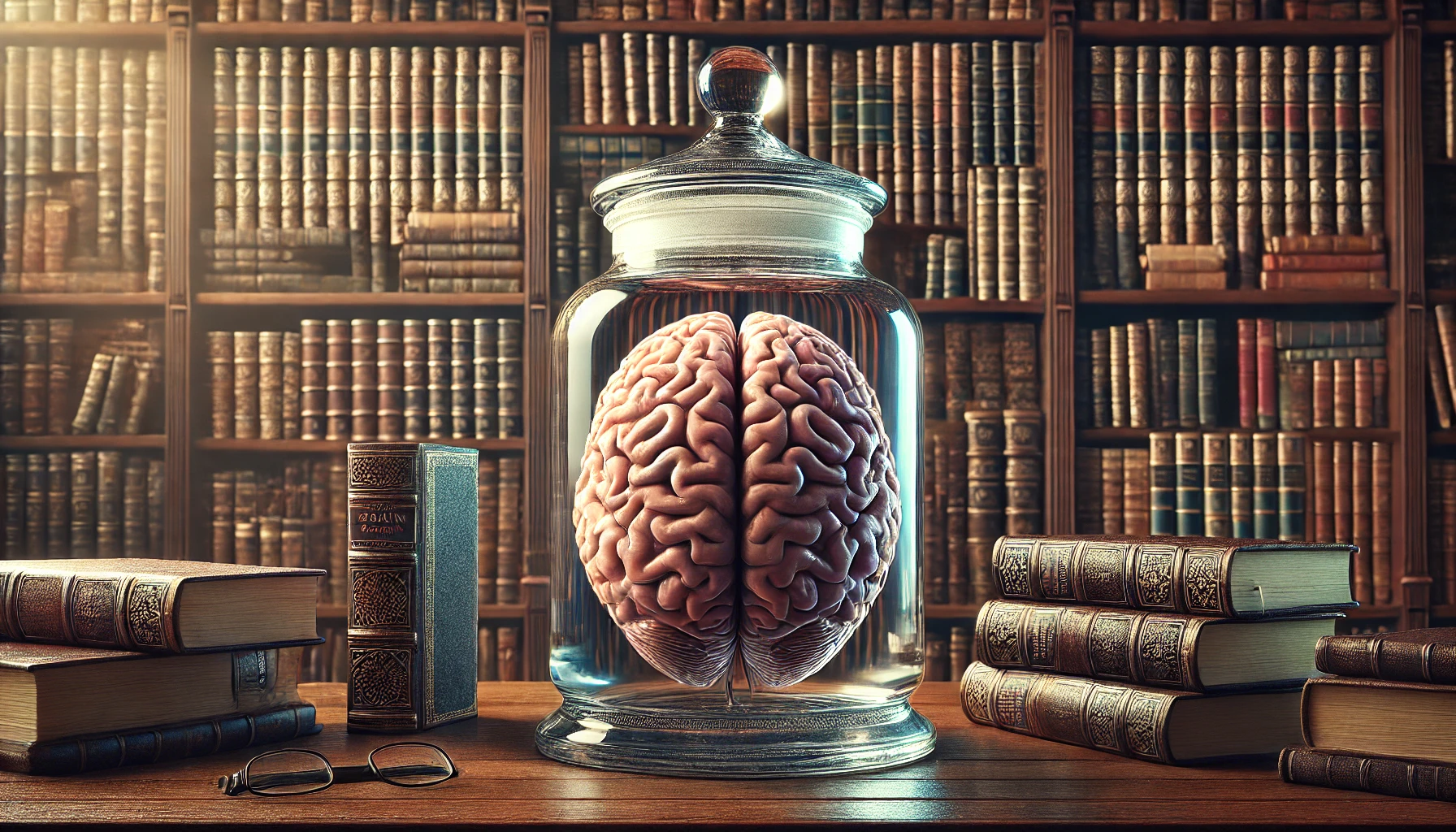Dreams have captured the imagination of writers, philosophers, and scientists for countless generations. These nightly visions can be colorful, bizarre, unsettling, or even surprisingly mundane. Despite their enigmatic quality, they play a vital role in our inner world, influencing how we process experiences, store memories, and manage emotions. With the rise of modern neuroscience and advanced brain-imaging technology, researchers have begun to shed more light on the profound link between dreaming and memory consolidation. This extensive exploration will guide you through the fascinating mechanisms behind our dreams, how they contribute to our ability to learn and retain information, and why they matter for emotional well-being and mental health.
The Nature of Dreams and Their Historical Significance
Dreams have been contemplated since ancient times. In earlier eras, many believed that dreams were messages from a spiritual realm or divine prophecy. Later, with the advent of psychology, the interpretation of dreams gained renewed importance, inspiring foundational work in psychoanalysis. Even without adhering to older, purely symbolic interpretations, the modern study of dreams recognizes their complex function in mental processes. By examining the brain’s activity during different stages of sleep, researchers have begun to uncover how dreams help us sort, reorganize, and make sense of the information we gather throughout our waking hours.
Shifting Perspectives on Dream Interpretation
From a purely symbolic approach emphasizing archetypes and hidden desires, scientific perspectives have gradually evolved to include biological and cognitive factors. Dreams may contain elements of daily experiences, hidden anxieties, or creative problem-solving. Indeed, the symbolic dimension of dreams can be compelling, yet contemporary science suggests a more intricate picture that merges emotional processing, memory consolidation, and neural reorganization.
Dreams as Windows into the Subconscious
Many thinkers consider dreams to be the brain’s attempt to communicate something to the conscious mind. Even when dreams feel random, they often stitch together fragments of our experiences, anxieties, and deep-seated memories. The process of weaving together these fragments likely reflects the complex interplay between different memory systems, particularly how emotional and episodic memories interact to shape the storylines of dreams. Although we may not recall all of our dreams, the neural processes that construct them still occur and may still influence our waking mind.
Memory Systems and Their Relationship to Sleep
Memory is not simply a single, unified storage system. Instead, it includes various interconnected subsystems that handle different types of information. These include working memory, short-term memory, semantic memory, episodic memory, and procedural memory. Each system plays a unique role in how we capture, store, and retrieve information. Many researchers believe that sleep—and dreams in particular—helps bind these subsystems together, ensuring that our memories remain coherent and accessible in the future.
Types of Memory Relevant to Dreaming
Episodic Memory: This involves personal experiences and is tied to a specific context or time. Dreams often incorporate details from recent events, suggesting that the episodic memory system is especially active during certain phases of sleep.
Emotional Memory: Emotional content can act as a “tag” that heightens the importance of certain experiences. The presence of strong emotional or significant events in dreams points to the brain’s efforts to process and integrate these emotional markers, potentially protecting us from being overwhelmed by unresolved feelings.
Procedural Memory: This concerns the acquisition of motor skills and other non-declarative forms of learning. Although dreams may not always seem to depict skill rehearsal, a sleeping brain is believed to be refining procedural memories as well, which can result in better overall performance upon waking.
The Role of the Sleeping Brain: A Complex Process of Consolidation
When the body enters deeper levels of rest, the brain remains extremely active. Researchers have identified multiple stages of sleep, among which the rapid eye movement stage attracts special attention due to its association with vivid dreaming and memory processing. Though dreams can occur in other phases, the rapid eye movement stage is characterized by distinct neural patterns that resemble wakefulness in some areas of the brain, while the body remains largely immobile.
Strengthening Memories through Rehearsal
During certain phases of sleep, the brain replays recent experiences, as if it were practicing or rehearsing them. This process allows newly formed memories to become more stable and less susceptible to interference from other information. When you study new material or learn a new skill, the time spent in deeper sleep, especially involving dream activity, can strengthen the neural pathways linked to that learning. The repeated firing of relevant neuron circuits during dreams likely contributes to cementing knowledge and establishing durable memory traces.
Emotional Regulation and Integration
Many dreams are charged with emotion, reflecting daily stresses, hopes, or fears. By reenacting these emotional scenes, the brain appears to work through feelings that may be too overwhelming or complex to handle in a fully conscious state. This mental “spring cleaning” can have a soothing effect, allowing individuals to process unresolved emotions and wake up with a clearer perspective. Some studies suggest that this emotional integration might reduce the intensity of negative feelings tied to difficult experiences, underscoring the role of dreams in mental health.
Major Theories Linking Dreams and Memory
Over time, researchers have formulated several theories to explain why humans dream and how the dreaming process might facilitate memory consolidation. Two widely discussed frameworks are the activation-synthesis hypothesis and the continual-activation theory. Although they approach the question from different angles, both emphasize the significance of neural activity related to memory storage during sleep.
Activation-Synthesis Hypothesis
According to the activation-synthesis hypothesis, dreams begin as random bursts of activity in the brainstem that spread throughout different regions. Because the higher cognitive areas crave coherence, the mind weaves these signals into narratives, no matter how fragmentary. Memory structures, such as the hippocampus and other areas essential to the creation of new memories, frequently appear to participate in this process. The result is a vivid dreamscape that can incorporate both recent experiences and older recollections. While this might make dreams appear bizarre, it can also hint at the brain’s effort to assimilate or re-contextualize experiences.
Continual-Activation Theory
The continual-activation theory proposes that dreams emerge from the brain’s constant need to process and reorganize stored information. Even when conscious stimuli are minimal during sleep, the neural networks keep running, striving to consolidate new data with older memories. This perspective suggests that the narrative structure of dreams helps link disparate pieces of information, facilitating creativity and problem-solving. Thus, dreams become an imaginative space where the mind can blend learning with past experiences.
Empirical Research: Unlocking the Secrets of Dreaming
Research into dreams and memory often relies on methods such as polysomnography, electroencephalography, and brain imaging techniques. By observing volunteers in sleep laboratories and monitoring brain activity, scientists have uncovered a great deal about how different regions work together when we drift into dreamland.
Sleep Studies and Learning
A robust body of research supports the idea that a period of sleep after learning improves retention. Participants who learn a new task—whether intellectual or motor-based—and then get a full, undisturbed sleep show better recall or performance than those who stay awake after studying. Although some investigators focus on non-rapid eye movement phases, many indicate that periods rich in rapid eye movement dreaming significantly bolster the consolidation of newly acquired information. These findings underscore the practical importance of prioritizing good-quality rest after engaging in any form of learning.
Neurological Research and Brain Imaging
With the help of functional magnetic resonance imaging and related methods, scientists can observe the sleeping brain in unprecedented detail. Certain areas, particularly those associated with encoding and retrieving memory, remain active during dreams. For instance, the hippocampus often “replays” recent experiences, as if rehearsing them for long-term retention. The neocortex, essential for higher-level cognition, also shows activation patterns that might correspond to the complex narrative structures of dreams. These patterns illuminate how various brain regions collaborate to merge new data with older memory constructs.
Practical Implications: How to Harness Dreams for Better Living
The expanding knowledge around dreams and memory has practical applications in daily life. By recognizing the crucial role of quality rest and dream-rich phases, individuals can integrate strategies for enhanced learning, emotional processing, and therapeutic work.
Enhancing Learning and Education
Those seeking to optimize learning can consider timing their study sessions so that sleep follows closely afterward. Whether rehearsing a musical instrument, studying a new language, or mastering a physical technique, the mental rehearsal that occurs in dreams can deepen the learning. Keeping a consistent sleep schedule that allows ample time for all stages of rest ensures that the brain can fully engage in the processes that underpin memory consolidation. Teachers, coaches, and mentors can also encourage students to integrate brief periods of rest or guided relaxation to facilitate better recall, especially for challenging material.
Therapy and Mental Health
In clinical contexts, dream exploration can offer therapists valuable insights into a patient’s emotional landscape. Dreams may reveal hidden anxieties or unresolved conflicts that the patient finds difficult to articulate during waking life. By discussing these nocturnal narratives in a safe, guided setting, individuals can process traumatic events or distressing emotions more effectively. Some therapy approaches even incorporate dream journaling or guided imagery to help individuals become more aware of recurring dream themes. These insights, combined with talk therapy techniques, can contribute to emotional well-being and potentially alleviate symptoms of anxiety, depression, or post-traumatic stress.
Creative Problem-Solving
Many authors, scientists, and artists throughout history have credited dreams with spurring remarkable innovations or artistic visions. The sleeping brain can shuffle different concepts in ways the conscious mind might never consider. Upon awakening, the dreamer may recall flashes of insight that offer solutions to problems or inspirations for a creative project. By maintaining a dream journal and reflecting on dream content, individuals can nurture a habit of harnessing these subconscious insights. This can prove especially valuable in disciplines that demand outside-the-box thinking.
Emotional Resilience and the Transformative Power of Dreams
Dreams can serve as emotional staging grounds where unresolved feelings are briefly reenacted. This re-exposure to difficult experiences in a low-stakes, non-conscious context may help diminish their emotional charge over time. Rather than simply ignoring or repressing uncomfortable emotions, dreams offer a venue to process them safely. Indeed, many who undergo therapy that incorporates dream analysis find that repeated dream themes gradually transform, reflecting growth and resolution in waking life. This highlights the mind’s innate capacity for self-healing and reorganization.
Navigating Nightmares
Nightmares, while distressing, can be seen as an especially vivid reflection of the emotional aspects of dreaming. They often relate to acute stress, trauma, or persistent anxieties. When nightmares become recurrent, they may disrupt sleep and contribute to ongoing stress in everyday life. However, specialized therapeutic techniques, such as imagery rehearsal therapy, can help individuals modify the content of nightmares. By actively re-scripting the fearful scenario in a calmer, more controlled manner, the individual can reduce the nightmare’s power. Over time, these techniques may transform the nightmare into a less distressing dream, illustrating how conscious reflection can affect even the hidden realms of the sleeping mind.
Balancing Emotions for Overall Well-Being
When dreams facilitate the processing of emotional challenges, the waking mind can experience increased balance and resilience. The ability to face daily stressors with a clearer, calmer mindset often hinges on the restorative power of sleep and the beneficial role of dreaming. While life circumstances inevitably introduce challenges, quality rest provides a hidden resource for coping. By offering a natural space for emotional integration, dreams may guard against burnout and help maintain a sense of stability. This underscores why prioritizing sleep is not merely about feeling rested but also about safeguarding mental health and cognitive vitality.
Cultivating Healthy Sleep Habits to Optimize Dreaming and Memory
Given the intimate connection between dreams and memory, it becomes essential to support the conditions that allow beneficial dream activity. Although many modern lifestyles make it challenging to maintain consistent sleep habits, cultivating small changes can yield profound results over time.
Establishing a Consistent Routine
By going to bed at the same time each night and rising at a regular hour, the body’s internal clock can synchronize more effectively with natural circadian rhythms. This consistency supports a fuller progression through the various stages of sleep, including the dream-rich rapid eye movement stage. When individuals maintain erratic sleep schedules, they might deprive themselves of these crucial periods, potentially harming memory retention and emotional processing.
Creating a Sleep-Conducive Environment
Light levels, noise, and even room temperature can significantly impact sleep quality. A dark, quiet, and comfortable space encourages the brain to transition through the necessary stages of rest. Reducing or eliminating screen time before bed can also be beneficial, as the type of light emitted by electronic devices can interfere with the natural onset of sleep. By maintaining a soothing environment, individuals can improve the likelihood of reaching deep and dream-intensive rest.
Limiting Stimulants and Fostering Relaxation
Substances like caffeine or nicotine can disrupt sleep architecture. Although moderate use might not always pose a problem, excessive consumption can diminish the duration or quality of deeper sleep stages. Engaging in relaxing activities before bed, such as gentle stretches, guided meditation, or reading, can help the mind transition more smoothly into rest. A calmer pre-sleep routine can reduce stress-related awakenings and pave the way for more meaningful dreams.
Dream Journaling and Mindful Recall
For those interested in exploring the content of their dreams, keeping a small notebook near the bed can be invaluable. Upon waking, even in the middle of the night, individuals can jot down any fragments of dream imagery or emotion they recall. This practice can enhance dream recall over time, revealing patterns, themes, and personal insights. The act of documenting dreams may also encourage a deeper engagement with one’s subconscious processes, ultimately strengthening the link between dreaming and conscious reflection.
The Ever-Unfolding Frontier: Dreams as a Bridge between Mind and Memory
Despite the strides made in dream research, many questions remain. Why do some people recall dreams more vividly than others? How exactly does the sleeping brain decide which memories to highlight or suppress? Are there ways to deliberately influence dream content to improve learning and psychological well-being? Ongoing studies strive to unravel these and other mysteries, continually expanding our understanding of how dreams support cognitive, emotional, and creative processes.
The Intersection of Neuroscience, Psychology, and Philosophy
Dream research spans various academic fields, underscoring the complexity of dreaming. Neuroscience probes the physical pathways of memory consolidation and the bursts of neural activity that illuminate dream images. Psychology focuses on the subjective experience, investigating how dream narratives may reflect unacknowledged desires, fears, or problem-solving abilities. Philosophy asks fundamental questions about consciousness, identity, and the nature of reality. By intertwining these approaches, we gain a richer grasp of why dreaming is so essential to human cognition.
Future Directions and Emerging Technologies
As brain-monitoring tools evolve, scientists can capture increasingly detailed snapshots of dream-related activity. Some researchers are investigating techniques for real-time communication with people who are in the midst of lucid dreams, offering new avenues to explore the boundaries of conscious and unconscious processes. Additionally, the integration of artificial intelligence could potentially illuminate patterns in dream data that are too subtle for human observers to detect. These innovations hold immense promise for unlocking further secrets of how dreams sculpt memory and consciousness.
Embracing the Power of Dreams for Cognitive and Emotional Health
Dreams are far more than fleeting curiosities that dance behind closed eyelids in the dark. They serve as crucial mechanisms for strengthening our memories, managing emotions, and fostering creativity. By immersing ourselves in the benefits of adequate rest and dream-intensive sleep, we can bolster our learning potential, enhance emotional resilience, and develop deeper insight into the mind’s hidden workings.
When we cultivate regular sleep schedules, set up restful environments, and become more mindful of our dream patterns, we invite a greater harmony between the conscious and unconscious realms. This alignment can lead to better problem-solving skills, improved recall of newly acquired information, and a greater sense of emotional stability. Furthermore, for those grappling with unresolved trauma or persistent anxieties, exploring the content of dreams within therapeutic contexts can offer profound healing and self-discovery.
The interwoven tapestry of dreams and memory underscores a vital truth about the human mind: growth, learning, and healing do not pause when our eyes close at night. Instead, these processes continue in subtle but powerful ways, shaping how we perceive our experiences and navigate our waking lives. Though many aspects of dreaming remain shrouded in mystery, ongoing research reveals that our nightly journeys are deeply tied to how we integrate knowledge, cope with challenges, and ultimately evolve. By honoring our dream life and appreciating the incredible capacities of the sleeping brain, we take a step toward more holistic well-being—one that embraces the indispensable role of dreams in forging a healthier mind and a richer life.






